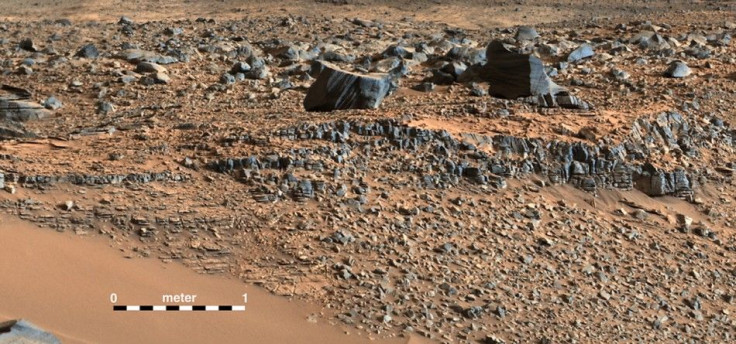Life On Mars: Scientists Say Tissint Meteorite From The Red Planet Contains Key Element For Biological Existence

A metoerite called Tissint meteorite landed on Earth in the Moroccan desert three years ago on July 18, 2011. Scientists have said that the meteorite has small fissures that were filled with carbon. The carbon is said to contain matter which could be of extra-terrestrial biological origin.
According to the Daily Mail, the search for life on Mars has always taken place to see if it is still habitable or once was. The meteorite could provide the answer to the question if the Red Planet had life.
An asteroid crashed into the surface of Mars over 700,000 years ago which resulted in Tissint getting ejected from Mars. Some of the space debris made it to Earth. Several eyewitnesses watched the meteorite fall into Earth as well as heard two sonic-booms.
A detailed analysis of the carbon in Tissint was performed by the director of Swiss Federal Institute of Technology's Earth and Planetary Sciences Laboratory in Lausanne, Dr Philippe Gillet, and his colleagues from China, Japan and Germany. The group found that the carbon might have a biological origin to it. Scientists said that when they say biological origin, they mean dead plant and animal matter.
They said that the carbon could have been deposited in fissures of the rock by fluid which is said to have been rich in organic matter. Though a lot of studies on the meteorite suggest that the carbon was organic, a question arose about where the carbon came from.
The new study opposed a study done in 2012 which suggested that the carbon was a result of crystallisation of magma at high temperature which suggested that it did not have a biological origin. However, the new study talked about how the liquid seeped into the rock at low temperatures. The study also ruled out the chance that the carbon had come from the Earth, hence pointing towards the fact that the meteorite proves life on Mars existed.
Gillet said that on such a sensitive topic, to be insisting on certainty, was unwise. He mentioned that till date, there was no other theory that was more compelling. He added that he was open to the fact that other studies might contradict the findings of his study. He also said that the conclusions of the study would bring about debate about the possible existence of biological activity on Mars in the past.
According to the Mirror, Earth and Mars were similar about 3.5 billion years ago. The report by the Mirror suggested that the evidence from missions on the Red Planet showed that Mars could have been much warmer and wetter.





















